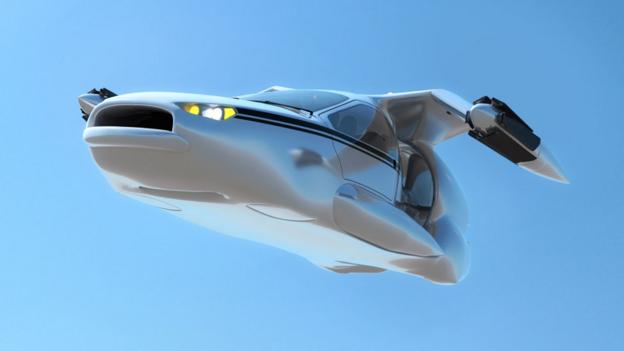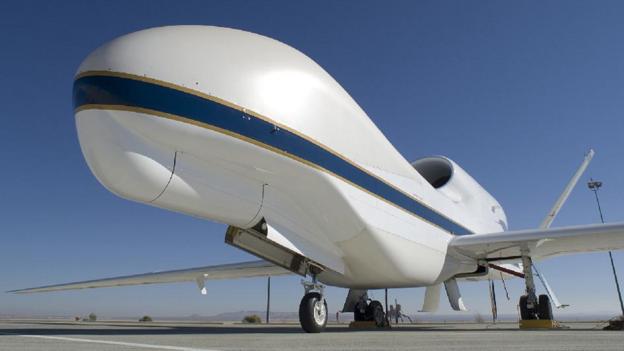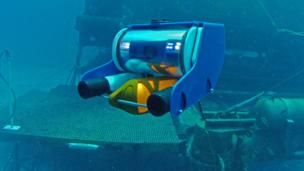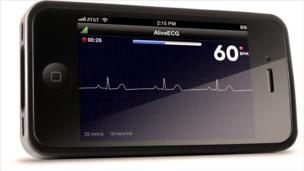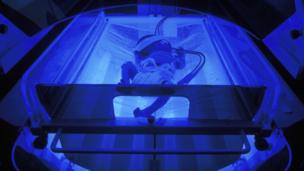WORLD-CHANGING IDEAS| 31 October 2013
The idea of having a part car, part plane, part drone parked outside your home may not be as far-fetched as it seems. There really aren’t any technological hurdles to this.
We are going to have personal air vehicles that are both cars and planes, at least that’s Missy Cummings’s vision of the future. It’s basically the intersection of a drone with a robotic car, so that your plane is also your car, but the big leap in technology is that you are actually driving neither, says the Associate Professor of Aeronautics and Astronautics at the Massachusetts Institute of Technology.
Drones have a negative bias in the media, says Cummings, because they are essentially seen as spy cameras. But most people don’t realise that when they are on a plane they are effectively travelling on a drone. The fly-by-wire technology that exists on all Airbus and many Boeing craft is the exact same technology that exists on drones.
The reason why drones are the answer to the future is that the truth is we are terrible drivers. Humans inherently have a half-second lag in almost any quick response that they need to have, like a ball rolling out in a street or seeing an aircraft in the sky and you have to take evasive action. Even a half-second delay can mean the difference between life and death, and computers and automated systems don’t have that – they have microseconds.
So, our transportation network of the future, both on the ground and in the air, will actually be safer when we turn it over to computers.
There really aren’t any technological hurdles to this idea, says Cummings. The biggest hurdles we have are psychological and cultural, in terms of giving up the car. But no new tech needs to be developed to have your own personal flying car. What we have to do is improve production and reduce manufacturing costs, and what that means is that we need more robots. So this is almost a self-circular process, where we need robots to build robots to make them cheaper.
Should we worry about the machines rising up and taking over? No, what Cummings says she is worried about is hackers and terrorists who want to do wrong. One of the things she is working on is trying to develop technology that allows any flying robot to be able to fend off any attack and be able to navigate itself without any GPS or any other external signal.
There are lots of different possibilities for what your personal air vehicle could look like. You could own your own in your driveway or garage, and you could jump in it. Or we could have a shared network like the plane version of Zipcar. People should be excited about this: it promises much in terms of safer travel, and in parts of the world where the road and air networks are poor, people will be able to get the goods and services they need.
So, when we look at globalising this concept of personal air vehicles, it means we will see the quality of life improve dramatically for everyone around the world.
For more World-Changing Ideas, click here.
Do you agree? If you would like to comment on this article or anything else you have seen on Future, head over to our Facebook page or message us on Twitter.
Featured Video
A behind the scenes tour of the US space agency's unmanned aerial vehicle programme.
Pancreatic cancer 's high death rate is partly blamed on the difficulty of early detection. Jack Andraka has come up with a cheap and simple blood test.
Adam Shaw visits Tianjin Eco-City
Adding metadata to digital photos can make them easier to find and harder to steal. Ian Hardy looks at apps that ease the burden of adding data.
By creating simple submarines that film underwater, David Lang hopes deep sea exploration is possible for everyone, not just the James Camerons of this world.
Sleek. Slim. Glossy. Packing apps and a touchscreen. Phones increasingly look the same. But, as Marc Cieslak discovers, it is what is inside that counts.
How your phone could help power a healthcare revolution – allowing your doctor to spot problems, and intervene, no matter where you are in the world.
Denmark has devised a way to deal with the problem of waste - by burning it.
Modern medicine is in danger of losing a powerful, old-fashioned tool: human touch.
The first birth in space and an unfortunate accident at the cryonics plant, kicks off a week of news reports that take a light-hearted look at the future.
Space probes and atom smashers are invaluable... and not just to science, says physicist Brian Cox.
From around the BBC
- Life expectancy: How long will you live?BBC FUTURE
- The wilder side of sexBBC FUTURE
- The mystery of the ancient glass masterpieceBBC CULTURE
From around the web
- Why Coffee is Good for YouTRP CONNECTIONS
- Oklahoma Cricket Invasion Grosses Out Sooner State Residents (PHOTOS)THE ORKIN ECOLOGIST
- The Most Innovative Idea in 2013 Is Hiding In Oakland, CATHE DAILY LIBERAL BLAST
- Nobody Knows What Built These Weird Little Web StructuresTHE ORKIN ECOLOGIST
- Dark matter experiment comes up empty, scientists sayTHECELEBRITYCAFE.COM
